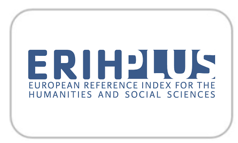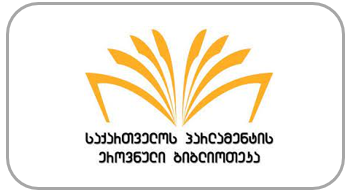The Interplay of Sustainable Development Goals on Education and Peace: Enhancing Trauma-Informed Approaches in Informal Learning Environments for Displaced and Vulnerable Populations
DOI:
https://doi.org/10.52340/healthecosoc.2024.08.02.05Keywords:
peacebuilding, displaced individuals, refugees, education, informal educational framework, trauma-informed care, COPE project, Sustainable Development Goals (SDGs)Abstract
Introduction: The Sustainable Development Goals (SDGs), particularly Goal 4 (Quality education) and Goal 16 (Peace, justice and strong institutions), emphasize the critical need for inclusive and equitable education systems that foster peace and justice. In the context of global conflicts, refugee crises and forced displacement, a significant challenge arises in supporting the mental health and educational outcomes of trauma-affected individuals – especially within informal learning environments. Refugees and displaced individuals often experience severe trauma which can hinder their ability to engage in education effectively. This paper examines the interplay of trauma-informed care with informal educational frameworks as a pathway to account for the distinctive needs of these vulnerable learners. Results: Trauma-informed education, which emphasizes safety, trust and emotional support, provides a framework to mitigate the impacts of trauma while fostering resilience and enhancing learning outcomes. Non-formal education settings often serve as primary educational spaces for refugees; however, they frequently lack the necessary resources and training to implement trauma-sensitive practices. The COPE project (Cooperation in Adult Education for Traumatised Learners), which is a European initiative funded under the Erasmus + program, responds to this gap by equipping educators and volunteers with the knowledge, tools and skillset to incorporate trauma-informed practices where applicable. Through developing pedagogical and psychological guidelines, situational simulation-based training and an e-learning platform, COPE aims to create an accessible, scalable model for supporting trauma-affected learners in non-formal educational settings. Conclusion: Integrating trauma-informed care into informal learning environments not only addresses the educational needs of refugees, but also contributes to broader peacebuilding and social cohesion efforts that align with SDGs.
References
Aber, J. L., Tubbs Dolan, C., Kim, H. Y., & Brown, L. (2021). Children's learning and development in conflict- and crisis-affected countries: Building a science for action. Development and Psychopathology, 33(2), 506-521. https://doi.org/10.1017/S0954579420001789
Asanov, A. M., Asanov, I., & Buenstorf, G. (2023). Mental health and stress level of Ukrainians seeking psychological help online. Heliyon, 9(11), e21933. https://doi.org/10.1016/j.heliyon.2023.e21933
Bassuk, E. L., Unick, G. J., Paquette, K., & Richard, M. K. (2017). Developing an instrument to measure organizational trauma-informed care in human services: The TICOMETER. Psychology of Violence, 7(1), 150-157. https://doi.org/10.1037/vio0000030
Becker-Blease, K. (2017). As the world becomes trauma-informed, work to do. Journal of Trauma & Dissociation, 18(2), 131. https://doi.org/10.1080/15299732.2016.1251995
Bendall, S., Eastwood, O., Cox, G., Farrelly-Rosch, A., Nicoll, H., Peters, J., Bailey, A. P., & Lofthouse, R. (2021). A systematic review and synthesis of trauma-informed care within outpatient and counseling health settings for young people. Child Maltreatment, 26(3), 313-324. https://doi.org/10.1177/10775595211013892
Bowen, E. A., & Murshid, N. S. (2016). Trauma-informed social policy: A conceptual framework for policy analysis and advocacy. American Journal of Public Health, 106(2), 223-229. https://doi.org/10.2105/AJPH.2015.302970
Burge, R., Tickle, A., & Moghaddam, N. (2021). Evaluating trauma-informed care training for services supporting individuals experiencing homelessness and multiple disadvantage. Housing, Care and Support, 24(1), 14-25. https://doi.org/10.1108/HCS-11-2020-0021
Champine, R. B., Matlin, S., Strambler, M. J., Romanelli, M., & Tebes, J. K. (2019). Systems measures of a trauma-informed approach: A systematic review. American Journal of Community Psychology, 64(3-4), 418-437. https://doi.org/10.1002/ajcp.12372
Chopp, S., Topitzes, D., & Mersky, J. (2023). Trauma-responsive vocational rehabilitation services. Behavioral Sciences, 13(6), 511. https://doi.org/10.3390/bs13060511
COPE Project. (n.d.). Available at: https://www.cope-project.org/
Cordis Bright (2017). Evaluation of the enhanced case management approach: Final report. Cardiff: Welsh Government.
Frieze, S. (2015). How trauma affects student learning and behaviour. BU Journal of Graduate Studies in Education, 7(2), 34-40.
Gerber, M. R. (2019). Trauma-informed healthcare approaches: A guide for primary care. Switzerland: Springer.
Halligan, S. (2017). How can informal support impact child PTSD symptoms following a psychological trauma? Emergency Medicine Journal, 34, A894. https://doi.org/10.1136/emermed-2017-207308.50
Han, M., Miller, S. C., & Shoffstall, M. (2021). Trauma-informed interventions: A systematic review. PLOS ONE, 16(8), e0255739. https://doi.org/10.1371/journal.pone.0255739
Hertog, K. (2017). The intrinsic interlinkage between peacebuilding and mental health and psychosocial support: The international association for human values model of integrated psychosocial peacebuilding. Intervention, 15(3), 278–292. https://doi.org/10.1097/WTF.0000000000000164
Infield, M., & Boswell, K. (2020). Trauma-informed approaches: What they are and how to introduce them. New Philanthropy Capital.
Jeffery, R. (2023). Addressing psychosocial trauma in post-conflict peacebuilding: Emotions in narrative and arts-based approaches. Cooperation and Conflict, 59(2). https://doi.org/10.1177/00108367231184721
Maynard, B. R., Farina, A., Dell, N. A., & Kelly, M. S. (2019). Effects of trauma-informed approaches in schools: A systematic review. Campbell Systematic Reviews, 15(1-2), e1018. https://doi.org/10.1002/cl2.1018
McCarthy, L., Parr, S., Green, S., & Reeve, K. (2020). Understanding models of support for people facing multiple disadvantage: A literature review. Centre for Regional Economic and Social Research – Sheffield Hallam University.
Morris, B., Hassinger-Das, B., DeWitt, J., & Todaro, R. (2024). Editorial: Informal STEM learning at home and in community spaces. Frontiers in Psychology, 15, 1383075. https://doi.org/10.3389/fpsyg.2024.1383075
Morton, S., Pencheon, D., & Squires, N. (2017). Sustainable Development Goals (SDGs), and their implementation: A national global framework for health, development and equity needs a systems approach at every level. British Medical Bulletin, 124(1), 81-90. https://doi.org/10.1093/bmb/ldx031
Pesch, A., Fletcher, K. K., Golinkoff, R. M., & Hirsh-Pasek, K. (2024). Evidence-based meets community-centred: A new approach to creating informal learning opportunities for children. British Journal of Developmental Psychology. https://doi.org/10.1111/bjdp.12511
Prestidge, J. (2014). Using trauma-informed care to provide therapeutic support to homeless people with complex needs: A transatlantic search for an approach to engage the “non-engaging”. Housing, Care and Support, 17(4), 208-214. https://doi.org/10.1108/HCS-06-2014-0019
Purtle, J. (2020). Systematic review of evaluations of trauma-informed organizational interventions that include staff trainings. Trauma, Violence, & Abuse, 21(4), 725-740. https://doi.org/10.1177/1524838018791304
Sep, M. S. C., Geuze, E., & Joëls, M. (2023). Impaired learning, memory, and extinction in posttraumatic stress disorder: Translational meta-analysis of clinical and preclinical studies. Translational Psychiatry, 13(1), 376. https://doi.org/10.1038/s41398-023-02660-7
Shank, M., & Schirch, L. (2008). Strategic arts-based peacebuilding. Peace & Change, 33(2), 217-242. https://doi.org/10.1111/j.1468-0130.2008.00490.x
Sweeney, A., Clement, S., Filson, B., & Kennedy, A. (2016). Trauma-informed mental healthcare in the UK: What is it and how can we further its development? Mental Health Review Journal, 21(3), 174-192. https://doi.org/10.1108/MHRJ-01-2015-0006
Sweeney, A., Filson, B., Kennedy, A., Collinson, L., & Gillard, S. (2018). A paradigm shift: Relationships in trauma-informed mental health services. BJPsych Advances, 24(5), 319-333. https://doi.org/10.1192/bja.2018.29
Tompkins, C., & Neale, J. (2018). Delivering trauma-informed treatment in a women-only residential rehabilitation service: Qualitative study. Drugs: Education, Prevention and Policy, 25(1), 47-55. https://doi.org/10.1080/09687637.2017.1285292
United Nations. (2020). Peacebuilding and sustaining peace: Report of the Secretary-General. A/74/976-S/2020/773. https://www.un.org/peacebuilding/sites/www.un.org.peacebuilding/files/documents/sg_report_on_peacebuilding_and_sustaining_peace.a.74.976-s.2020.773.200904.e_4.pdf
Wilton, J., & Williams, A. (2019). Engaging with complexity: Providing effective trauma-informed care for women. Centre for Mental Health and Mental Health Foundation. https://www.centreformentalhealth.org.uk/wp-content/uploads/2019/05/CentreforMH_EngagingWithComplexity.pdf
Yadav, G., McNamara, S., & Gunturu, S. (2024). Trauma-informed therapy. In StatPearls [Internet]. Treasure Island (FL): StatPearls Publishing.














